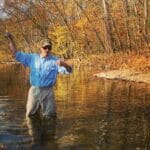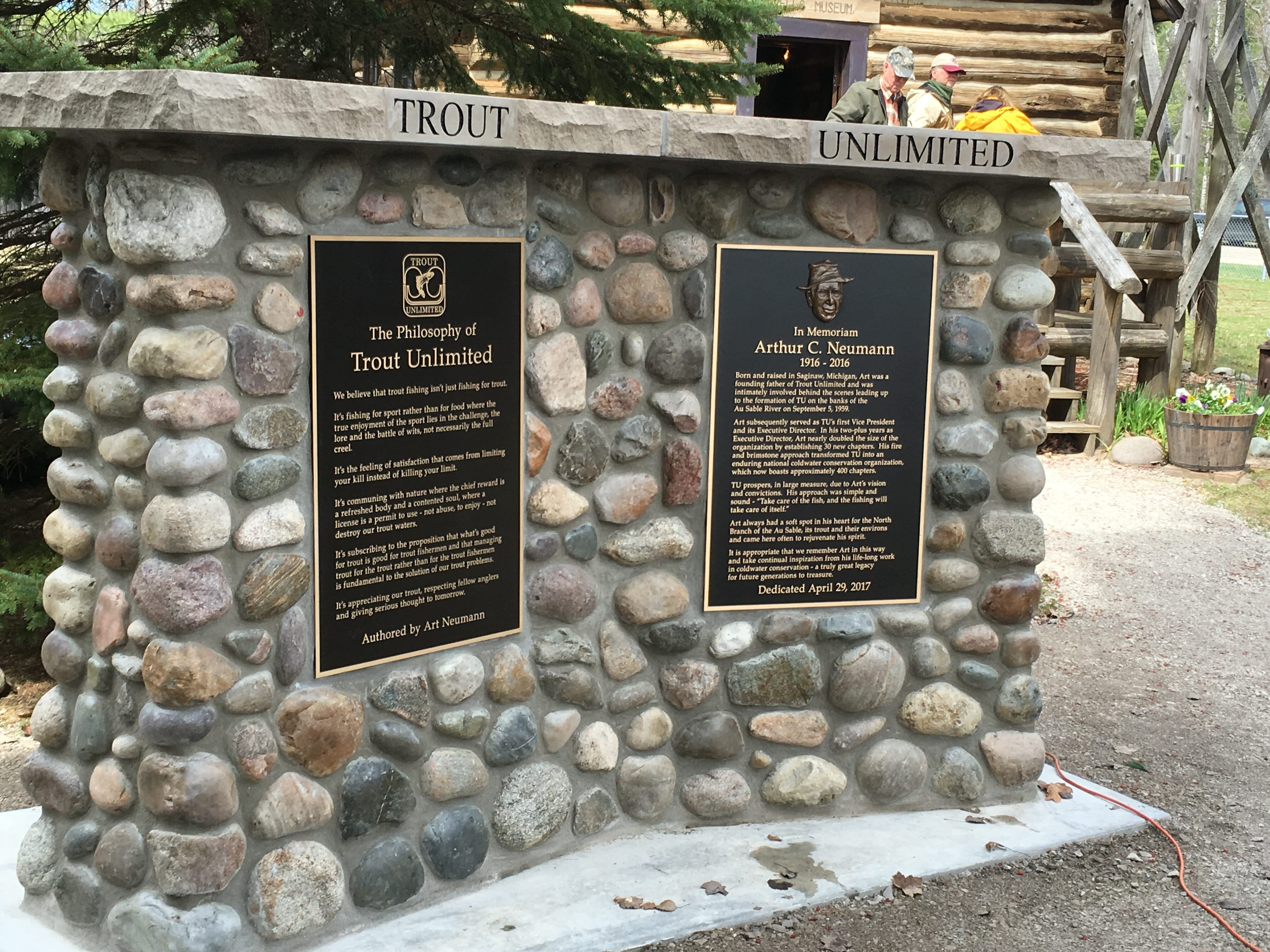TU does more work than any other organization in the country to make fishing better. For example, in Mill Creek, a tributary to the Russian River in California, we worked for seven years with our partners to remove a dam to reopen 14 miles of critical spawning habitat for imperiled Coho salmon. Across the country in Virginia, Keith Curley and his staff are working with the USGS to identify spring creeks and to extend the coldwater influence of those creeks through restoration so that wild and native fish can better survive warming temperatures and droughts.
This restoration work is the bread and butter of who we are, and the results always make fishing better. But that is not necessarily our most important work.
Consider Mill Creek. MaryAnn King, our project lead at Mill Creek worked for years to secure an access agreement across private lands for the project. Sadly, Dan Galling, the landowner, passed away before it was complete. MaryAnn then worked with the five Galling children to complete the agreement and the project. When it was complete, Dan’s children sent her a note saying, “We know that Dad would be so proud of you for bringing the salmon back to Mill Creek—the very reason he lived there.”
Similarly, in Virginia, the precursor to our spring creek work with USGS was initiated by TU member, Jerry Black. Working with the Massanutten chapter, Jerry and his neighbors restored their creek so that it now supports wild and native fish. They were so pleased with the result that they wanted others to be able to enjoy it, too. Today, an angler can pay $10 per day and fish several miles of water that would otherwise be private. And, the money goes back to the local chapter.
Stories such as these bleed across TU. Every year, for example, Dave Kumlien, the coordinator for the Veterans Service Partnership, takes ten veterans and their spouses to an inholding in Yellowstone National Park for a week of fishing, fun, and healing. Here is what one couple, J.W. and Jen Cleveland sent after this Fall’s trip. “You have given us something as a couple we didn’t even know we needed. We are very excited to continue the sport together and share the knowledge with our sons. We want to give something back to this organization that has given us so much.”
We live in a world defined by our differences. Our politics are divisive. Through our work to protect and restore trout and salmon and their watersheds, we are helping to bring families such as the Gallings’ together. We are helping the families of veterans such as the Cleveland’s to heal.
This past summer, I had the chance to take my then, 13-year old son, Wylie, fishing in Canada for walleye and pike and wrote an essay about it for our blog on tu.org. A few weeks later, a TU member named Nate Blue sent me a letter: “I think it is so cool when Dad’s and sons get to be fishing buddies. While we dads and grandads worry about our kids and grandkids being bombarded with drugs, sex, power (or powerlessness), or being coerced into the rush of “getting as much for me as fast as I can,” so often at the exist of our planet, perhaps just by getting them into the outdoors, contributing our $35 per year to TU, and teaching them to respect nature, we can having done our best, see their independence and self-reliance, and fit in this world, and then maybe we can relax a little.”
This holiday season, consider the many reasons to support TU. We make fishing better. We make streams more resilient to the effects of a changing climate. We bring families together. We help veterans to heal. As Nate Blue points out, we also help connect parents to their kids.
We help to make the world a better place for fish, and people, too.



